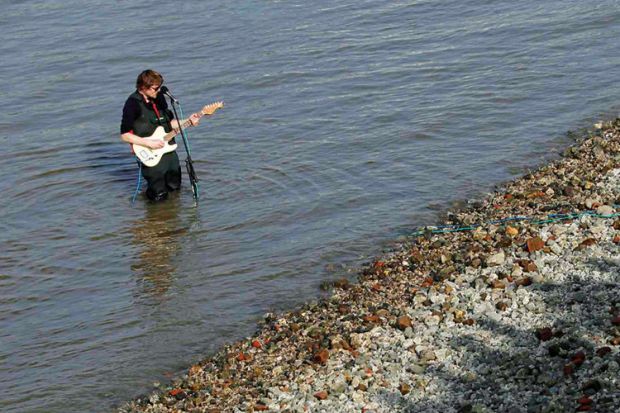Source: Reuters
Seeing your research make the headlines can be a thrill for academics. It’s a chance to show the world what academia can achieve and to demonstrate how deep understanding of a subject can benefit society.
Research may lead to a ground-breaking treatment for dementia or a history-changing new perspective on an ancient document. The implications of such scholarship might be clear to those in academia, but how can researchers make sure that these findings catch journalists’ attention and, thereby, a wider audience?
This was the subject of a session at an event hosted by the Early Careers Network of University College London’s Population and Lifelong Health Domain. At a seminar on 22 April, Rosie Bartlett and Kate Hoyland, former BBC journalists and partners in Quattrain, a communications and leadership consultancy, explained that researchers should think like journalists in order to get their work noticed by the press.
“Journalists have a very short attention span,” Ms Bartlett told Times Higher Education after the event. “Do the work that will help the journalist; put yourself in their shoes a little bit.”
Essential points that journalists will want to know about research include what is new, why people should care and how expert and credible the person conducting it is. Academics should keep this in mind when writing abstracts and press releases, said Ms Bartlett, who also heads communications at the Global Alliance for Chronic Diseases at UCL’s Institute for Global Health.
Researchers were advised to shift out of a statistics mindset and instead to think about who the people reading, watching or listening to details of their work might be. “Try to imagine that your audience is a best friend or a family member with a vested interest in you,” she said.
In writing abstracts for papers, academics hungry for press attention should consider how they would present their research in spoken form, she added.
“Every time they speak about their research, they should say it in that personalised way,” explained Ms Bartlett. “Everybody pretty much reads BBC News online. Have a look at the health headlines and look at how those are translated to research.” Work that has made the headlines often includes personal stories that members of the public can identify with, she noted.
Researchers need not fear that this will dumb down their work. “If you write it in a clear sentence, it doesn’t have to be dumbed down, but that is also a slight academic snobbery,” Ms Bartlett said. “It’s all very well writing [research], but it’s not really going to effect change unless you get it into a wider media area that is going to get picked up by policy people.”
Understanding the news agenda is also key to catching an editor’s attention. If the research has an angle related to stories already in the news, such as the Ebola outbreak in Africa or the Mediterranean migrant crisis, it is likely to get more interest. Putting research in context is important, Ms Bartlett said.
Register to continue
Why register?
- Registration is free and only takes a moment
- Once registered, you can read 3 articles a month
- Sign up for our newsletter
Subscribe
Or subscribe for unlimited access to:
- Unlimited access to news, views, insights & reviews
- Digital editions
- Digital access to THE’s university and college rankings analysis
Already registered or a current subscriber? Login





